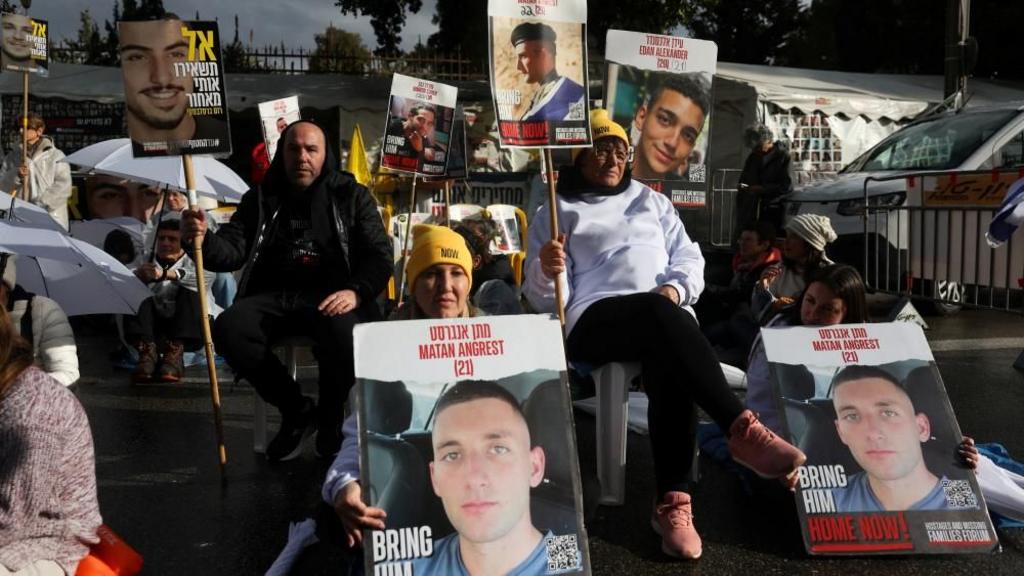Doha, Qatar – April 22, 2025
As the war in Gaza Hostage continues to grip global attention, Qatar has issued a strong warning against shifting away from the current ceasefire framework. This comes as Israel and the United States align on a fresh proposal to facilitate the release of hostages held by Hamas and reduce ongoing tensions in the region.
Qatar, a key regional mediator in the conflict, has urged all parties to stick with the previously agreed-upon roadmap for a ceasefire and hostage exchange. Officials in Doha are concerned that introducing a new plan could derail months of delicate negotiations and risk the collapse of what little progress has been made so far.
Qatar’s Message: Stick to the Plan
Speaking from Doha, Majed al-Ansari, spokesman for Qatar’s Ministry of Foreign Affairs and a senior adviser to the Prime Minister, stressed the need to remain committed to the original agreement that had already brought the warring sides to the table.
“Right now, there are a lot of ideas being thrown around to maintain the ceasefire,” al-Ansari said in a media briefing. “But what’s missing is the will to start phase two of the deal. Without that, the talks are just going in circles.”
The framework, first agreed in January 2025, was structured in two phases. The first involved a temporary truce and the initial exchange of hostages for Palestinian prisoners. The second phase, which has yet to begin, is meant to focus on achieving a long-term ceasefire and ensuring the release of remaining hostages.

Qatar insists that this agreement remains the most credible and realistic path forward. Changing the terms now, officials argue, could undermine trust and stall momentum at a time when every day counts.
New Proposal from Israel and the U.S. Raises Eyebrows
In contrast, Israel and the United States are backing a new plan that aims to renew talks and quicken the release process. This proposal reportedly includes a 45-day truce, during which Hamas would release 10 Israeli hostages. In exchange, Israel would release hundreds of Palestinian prisoners, including those serving life sentences, and scale back its military presence in Gaza.
The deal also suggests reopening humanitarian aid routes and easing restrictions on movement in Gaza, specifically at the key Netzarim corridor that currently divides the northern and southern parts of the territory.
Israeli and American officials believe the new plan would improve security conditions, enable humanitarian aid, and pressure Hamas to negotiate more seriously. However, Qatar argues that these ideas should be implemented only after the second phase of the current agreement has begun, not as a replacement for it.
Hamas Rejects New Deal, Wants Full Withdrawal First
Adding to the tension, Hamas has flatly rejected the new proposal. The militant group claims it does not guarantee an end to the war or provide a clear roadmap for the withdrawal of Israeli troops from Gaza. Without these guarantees, Hamas leaders say they will not consider the offer.
One senior Hamas official criticized the plan, calling it “one-sided” and designed to serve Israel’s political interests rather than genuinely move toward peace. The group is demanding a complete ceasefire, full Israeli withdrawal, and guarantees for the long-term safety of Palestinians before agreeing to release more hostages.
Qatar’s Role as a Key Mediator
Qatar has been at the heart of nearly all negotiations since the outbreak of the Gaza conflict. Alongside Egypt, it has played a behind-the-scenes but critical role in brokering truces, arranging prisoner swaps, and keeping communication lines open between Israel and Hamas.
This position has allowed Qatar to gain the trust of both sides — a rare feat in the region. However, officials now fear that pushing a new deal forward without building on the existing framework could lead to renewed violence and deeper mistrust.
“Abandoning the current agreement could undo months of effort,” said one senior Qatari diplomat, speaking anonymously. “It is not just about saving hostages. It’s about saving the entire negotiation process.”
International Pressure Mounts for Resolution
As the humanitarian crisis in Gaza worsens, pressure is building on all parties to find a path forward. More than 1.5 million people have been displaced since the start of the conflict, and the need for food, medical aid, and shelter is becoming more urgent by the day.
The United Nations and several European governments have urged Israel, Hamas, and mediators to prioritize humanitarian needs and work toward an immediate ceasefire. While there is broad support for hostage releases, international leaders also stress the importance of maintaining stability in Gaza to avoid a full-blown regional escalation.
Uncertain Future for Peace Talks
For now, the future of the negotiations remains unclear. With Israel and the U.S. pushing a new strategy, Hamas firmly rejecting it, and Qatar calling for a return to the original deal, the peace process is once again at a fragile turning point.
Diplomatic sources suggest that back-channel discussions are ongoing, with Qatar working behind the scenes to bridge the growing gap. Still, there is no sign yet of a breakthrough that would restart the stalled second phase of the original agreement.
The situation remains tense, and the coming weeks will be critical. Whether the existing framework can be salvaged — or whether a new proposal gains traction — will depend on the willingness of all parties to compromise, prioritize lives over politics, and rebuild trust at the negotiating table.
ONE 171: Epic Fights, Emotional Goodbyes, and Championship Glory in Qatar



